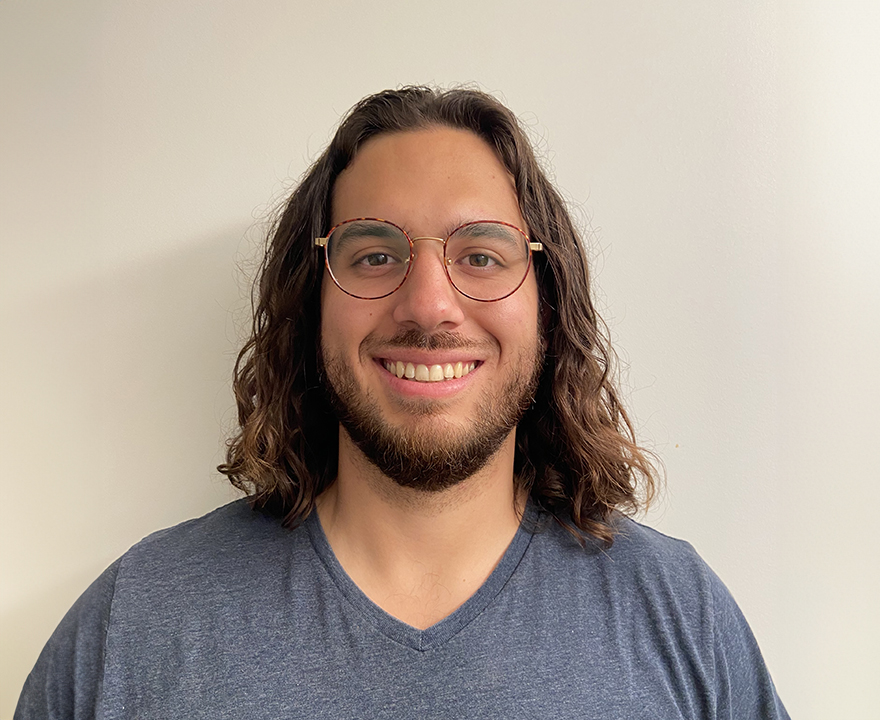Lopez-Wild receives Lambert Prize

Lopez-Wild receives Lambert Prize
- May 30, 2024
- Honor recognizes the fourth-year logic & philosophy of science Ph.D. student for outstanding work addressing foundations of the formal, natural, or social sciences
-----
Josiah Lopez-Wild, fourth-year UCI logic & philosophy of science graduate student, is one of three recipients of this year’s Justine Lambert Prize. The honor recognizes students for outstanding work addressing foundations of the formal, natural, or social sciences. Below, the Anteater from Traverse City, Michigan shares more about his award-winning work – “A Computable von Neumann-Morgenstern Representation Theorem” – and the UCI mentors who have been instrumental to his growth as an aspiring professor.
Q: What made you decide to pursue your current field of study, and specifically at UCI? What interests you most about your work?
A: I earned my bachelor’s in philosophy from Northwestern University, and my master’s in philosophy from the University of Wisconsin, Milwaukee. Through my background in philosophy, I got interested in logic and mathematics, both because they're interesting in their own right and because I was interested in understanding how reasoning itself works. I came to UCI because LPS is a unique place---it's one of the few departments that encourages students to engage with both philosophy and the sciences, as opposed to picking one or the other. During my time here that interest in reasoning turned into an interest in intelligent decision-making and rationality, which is my current field of study.
Q: Tell us about your research. What problem will your findings help solve?
A: Many behavioral sciences like psychology, cognitive science, economics, parts of statistics, and philosophy agree on a core model of rationality, called expected utility theory. It's a popular theory, but it makes some unrealistic assumptions about the decision maker. It assumes decision makers can make inferences that are simply too difficult for humans or computers to accomplish, which makes it seem like it's the wrong theory for describing real decision makers. My work makes this theory more realistic by assuming that the agent can be modeled by a Turing machine, like a computer. The question then becomes: can you define algorithms that compute the answers to problems in expected utility theory? In some cases, yes, in others no, and the failure cases can be surprising.
Q: In addition to coursework and research at UCI, what other activities are you involved with?
A: I participate in TH!NK, a program organized by UCI's Department of Philosophy, which sends philosophy Ph.D. students to elementary schools to get kids to think about philosophical questions. They often have really creative ideas.
Q: Who have been your faculty mentors while here, and what impact have they had on your graduate career?
A: Toby Meadows has been advising my work since I arrived at UCI; along with teaching me a lot of logic and mathematics, he has taught me how to think like a mathematician---how to make my research questions precise and how to prove them. Simon Huttegger has expanded my interests into the behavioral sciences, and has shown me that they contain a wide range of interesting questions that can be tackled rigorously. Most of my current research interests are due to his influence.
Q: When do you plan to complete your Ph.D.? What are your plans thereafter? How has UCI prepared you well for this role?
A: I plan to finish in Spring 2026. The plan is (hopefully) to continue in academia and become a professor. UCI (LPS specifically) has given me extensive research preparation, more than I think is common in similar grad programs in philosophy; I've also had a chance to teach a variety of courses and determine what teaching methods work best for me.
-----
Would you like to get more involved with the social sciences? Email us at communications@socsci.uci.edu to connect.
Share on:
Related News Items
- Careet RightUC Irvine's Department of Logic & Philosophy of Science earns top spots in latest faculty rankings
- Careet RightUCI's Logic and Philosophy of Science Summer Diversity Program continues to champion underrepresented voices
- Careet RightAttending the National Conference for Black Political Scientists
- Careet RightThe changing bilingual brain
- Careet RightQ&A with soon-to-be professor Hannah June Kim


